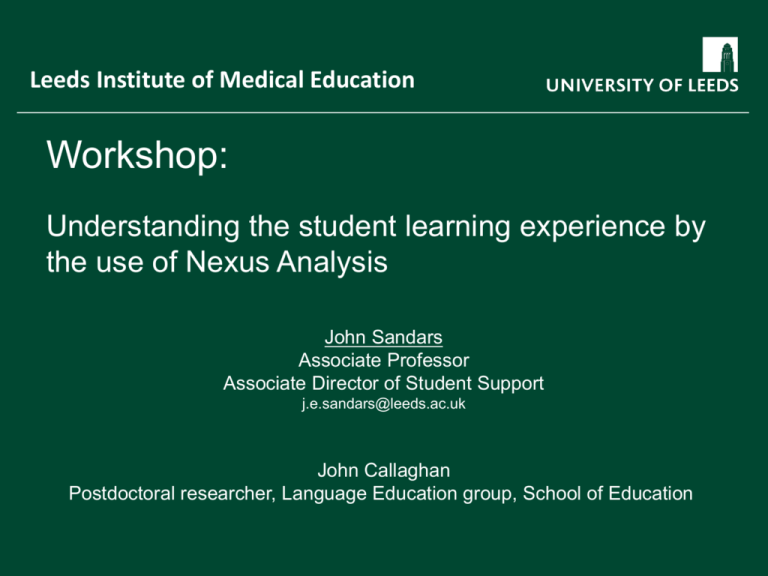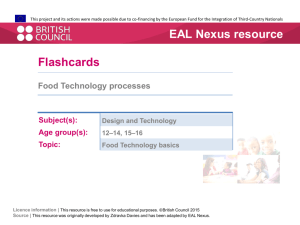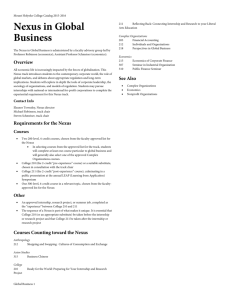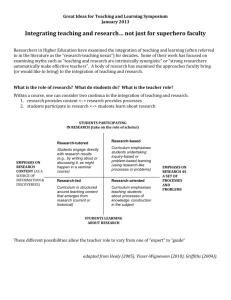Personal Tutor Scheme Planning for 2013
advertisement

Leeds Institute of Medical Education Workshop: Understanding the student learning experience by the use of Nexus Analysis John Sandars Associate Professor Associate Director of Student Support j.e.sandars@leeds.ac.uk John Callaghan Postdoctoral researcher, Language Education group, School of Education Methodology - Nexus Analysis Ethnographic methodological strategy to develop an understanding of complex social actions Ron Scollon (1939–2009) was a professor of Linguistics at Georgetown University, USA Ronald Scollon (2001). Mediated discourse: the nexus of practice. Routledge. Ronald Scollon; Suzanne B. K. Scollon (2004). Nexus analysis: discourse and the emerging internet. Routledge. Nexus Analysis Nexus is a unique historical moment when separate social practices come together in a social action eg assessment failure Social practices = interaction between individuals AND a range of different artefacts eg books/ guides /other people (discourses) Doing a Nexus Analysis [1] Engaging the nexus of practice [2] Navigating the nexus of practice [3] Changing the nexus of practice [1] Engaging the nexus of practice Identify – intersection of various recurrent cycles of social practices at a moment eg assessment failure Researcher as part of the system and contributing to change and action [1] Engaging the nexus of practice Identify – intersection of various recurrent cycles of social practices at a moment eg assessment failure Researcher as part of the system and contributing to change and action [1] Engaging the nexus of practice Identify the Participants Assessment Learning NEXUS Social [2] Navigating the nexus of practice • Set boundaries of the navigation– eg learning /assessments • Work through the trajectories (past, present and possible future) of people, places and situations • Includes discourse analysis (interactions with mediating artefacts (wide range) Aim is to identify recurrent cycles using range of data collection eg interviews/focus groups/observations/ texts [3] Changing the nexus of practice Seek change to nexus of practice by obtaining multiple perspectives “Inquiry is social activism. We now think it is the only effective form of activism” • Our insights from Nexus Analysis? Background and Aims of Research • To improve the learning experience of Medical Students - International - entry Yr3 • To understand the “culture” of teaching and learning – the “fit” of the learner and their environment • Need to be informed by relevant theory – Nexus Analysis Doing a Nexus Analysis [1] Engaging the nexus of practice [2] Navigating the nexus of practice [3] Changing the nexus of practice Findings • Mainly MCQs • No reflection • No academic induction Findings • Reflective essays • Ethical issues • No study groups • Lack of integration Nexus Analysis • Explicit focus on change and improvement • Deeper understanding helped by theoretical perspective • Cross-disciplinary research (medical and critical discourse)





